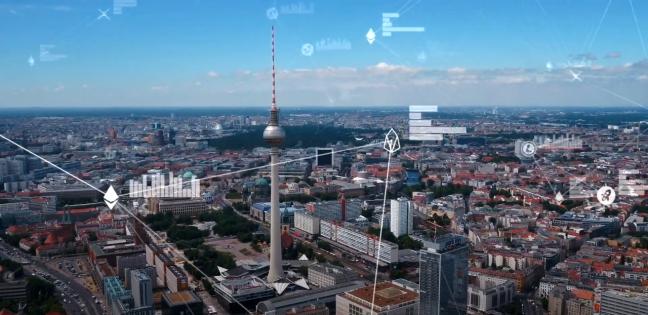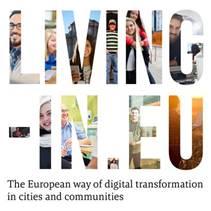
Interoperability is one of the main challenges, and a key component, for local administrations due to their interaction with the higher levels of public administration and the private sector. Furthermore, it facilitates the wider adoption of connected technologies and assures the compatibility of devices for citywide adoption, along with the development and deployment of services across sectors, cities, regions and borders.
An Interoperability Framework for Smart Cities (small- and medium-sized, as well as metropolises) and Communities (villages and municipalities) based on EIF will help pave the way to the new era of interoperable interactions at local level.
The European Commission – through the Smart Cities and Communities European Interoperability Framework (EIF4SCC) – aims to support local administrations and other actors with challenges that relate to providing interoperability services to citizens and businesses. The Framework intends to support primarily local administrations and, in particular, local policy makers. This work in progress is jointly managed by DG DIGIT as part of the ISA² Programme (2016-2020), and by DG CONNECT in the framework of the Living-in.eu movement.
The Smart Cities and Communities initiative will use digital technologies and data to make cities climate- and mobility-friendly, more interconnected and, in general, more agreeable to its inhabitants and businesses.
The affected sectors, at local level, include buildings, energy, transport, waste and water management systems, as well as other local public services and governance applied by the municipality itself. Driven by the impact that technology has on society and the public sector at national level (e.g. eID), the local level will also be influenced by the emergence of such new technologies with the increasing digitalisation of their administrations. Due to the multi-level interactions that occur with higher levels of administration – including those of the private sector for local services (such as mobility, energy, transport etc.), interoperability is one of the biggest challenges for local administrations. Powerful multinational companies often try to apply a kind of vendor lock-in to specific technologies they deploy in cities, or do not follow strict security rules that could lead to issues with data protection and the privacy of citizens.
Living-in.EU

The ongoing initiative “Joining forces to boost sustainable digital transformation in Europe’s cities and communities” (LI.EU), aims to roll out interoperable urban digital platforms and a set of standards and technical specifications, such as the Minimum Interoperability Mechanisms (MIMs). It is, therefore, considered that an introduction to interoperability concepts – highlighting their relevance at local level and creating a toolbox (including recommendations) for implementation by cities and communities – would be a powerful tool in achieving this initiative throughout Europe.
European Interoperability Framework (EIF)

The current EIF action focuses mainly on public services provided by public administrations, while the private sector is often only involved in the delivery of services on energy, transport, water and waste management at the local level. Therefore, it seems appropriate to develop a Cities and Communities Interoperability Framework supplemented with an overview of available actions and services to support local administrations.
The outcome
Once this project concludes, the Commission will be able to propose to local administrations in EU Member States an:
Interoperability Framework, and a categorised overview of the available actions and services (of associated ISA² Programme services and solutions that will have been identified).
They will also gain an understanding of activities taken at EU level – or by higher administrations in Member States – to support interoperability in local administrations. This knowledge can then be made available in a reusable format to regionally- or locally-embedded structures (such as, for example, Digital Innovation Hubs, Living Labs, Policy Labs etc.) that can act as multipliers and help the capacity building of local administrations. As such, it will act as an instrumental element for the implementation of the LI.EU commitments and will contribute to the growth of urban digital solutions in an interoperable and, thus, scalable manner.
EIF4SCC Video
For more information regarding EIF4SCC, you can contact the Commission (CNECT-SMART-COMMUNITIES@ec.europa.eu) or the contractor (eif4scc@deloitte.pt).


Comments
Are you interested in #Interoperability policy for #smartcities and #smartcommunities? Now is your chance to help us shape it!
The stakeholder consultation survey is available until the 12th of April 2021!
The European Interoperability Framework for Smart Cities and Communities (EIF4SCC) aims to provide European Union local administration leaders with definitions, principles, recommendations, including practical case studies, and a common model that enables public service delivery across domains, cities, regions, and borders.
Note:
You can find the publication of the Proposal for a European Interoperability Framework for Smart Cities and Communities (EIF4SCC) and the full study in The Publications Office (OP) of the European Union which is the official provider of publishing services to all EU institutions, bodies, and agencies.
Published: 2021-07-21